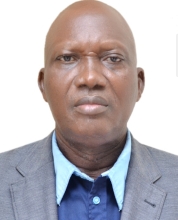
HEALTH TALK: Use of internet on mental health of youths
By Suleiman Tajudeen
CITIZENS COMPASS— Internet use refers to the utilisation of the internet for various purposes, including communication, information gathering, entertainment, and education.
Excessive internet use can lead to negative impacts on mental health, social relationships, and daily life.
Internet misuse can have severe implications for the mental health of Nigerian youths. Studies have shown that excessive social media usage is linked to increased symptoms of depression, anxiety, and insomnia among young people in Nigeria. A significant number of Nigerian youths spend several hours daily on the internet, with some studies indicating an average of 5 hours per day, which can lead to digital addiction and have negative effects on their mental well-being.
Some of the ways internet misuse affects Nigerian youths include:
Depression and anxiety: Excessive social media usage has been linked to increased symptoms of depression and anxiety.
Sleep disturbances: Staying up late to use social media can lead to insomnia and other sleep-related problems.
Unrealistic expectations: Exposure to idealized online content can create unrealistic expectations and lead to feelings of inadequacy.
Unhealthy comparisons: Comparing oneself to others on social media can foster unhealthy competition and low self-esteem.
Mental health refers to an individual’s overall psychological well-being, encompassing their emotional, cognitive, and behavioral aspects. It involves the ability to:
Manage stress: Cope with daily life challenges, stress, and anxiety.
Build relationships: Form and maintain healthy, fulfilling relationships with others.
Make decisions: Think critically, make informed decisions, and solve problems.
Adapt to change: Adjust to new situations, challenges, and environments.
Maintain a positive outlook: Experience a range of emotions, including happiness, sadness, and anger, while maintaining a positive overall outlook on life.
To mitigate the effects of internet misuse, organizations such as the Mentally Aware Nigeria Initiative (MANI) are working to educate young people on responsible social media use, digital literacy, and the importance of taking breaks from social media. Some strategies include:
Digital literacy programmes: Educating youths on how to critically evaluate online content and maintain a healthy online presence.
Social media detoxes: Encouraging young people to take regular breaks from social media to reduce stress and improve mental well-being.
Online psychotherapy/counselling services: Providing accessible and affordable online psychotherapy/counselling services to support young people struggling with mental health issues.
Overall, addressing the mental health impacts of internet misuse among Nigerian youths requires a collaborative effort from individuals, teachers, family, communities, and institutions to promote healthy digital habits and provide support for those struggling with mental health issues.
Historical perspective of internet misuse among Nigerian youths
Early years of internet access (1990s-2000s)
Limited access: Internet access was limited in Nigeria during the 1990s, with few Nigerians having access to the internet.
Academic and research focus: The internet was primarily used for academic and research purposes, with many universities and research institutions having limited internet access.
In recent years, there have been internet misuse that affects youths mental health that needs to be addressed to avoid any form of psychological problems.
Growth of internet access (2000s-2010s)
Increased Access: The widespread adoption of mobile phones and internet services led to increased access to the internet among Nigerian youths.
Social media emergence: Social media platforms emerged, providing new avenues for communication, socialization, and information sharing.
Internet cafes: Internet cafes became popular gathering places for youths, providing access to the internet and online gaming.
Rise of internet misuse (2010s-present)
Increased screen time: The increased availability of smartphones and affordable data plans led to increased screen time among Nigerian youths.
Social Media Addiction: Social media platforms became increasingly popular, with many youths exhibiting addictive behavior.
Cyberbullying and online harassment: Cyberbullying and online harassment emerged as significant concerns, with many youths experiencing online abuse.
Online Gaming Addiction: Online gaming addiction became a
To be continued…
Dr Suleiman Tajudeen is Director, Clinical Psychology, LUTH (Retired) & CEO/Director of Clinical Psychology, Clear Mind Psychological Consult, Km 15, Badagry Expressway, Ojo, Lagos State. +234 803 402 4457







